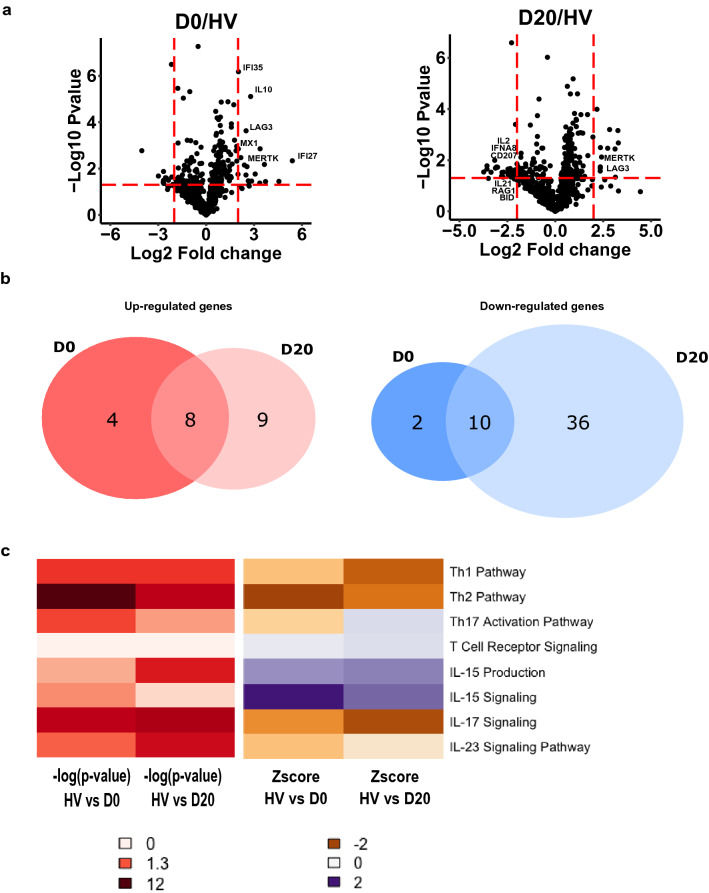Frank Bidar
Frank Bidar
1Joint Research Unit HCL-bioMérieux, EA 7426 “Pathophysiology of Injury-Induced Immunosuppression”, Université Claude Bernard Lyon, 1-Hospices Civils de Lyon-bioMérieux, 69003 Lyon, France
2Anesthesia and Critical Care Medicine Department, Edouard Herriot Hospital, Hospices Civils de Lyon, 69437 Lyon, France
3Immunology Laboratory, Hôpital E. Herriot-Hospices Civils de Lyon, 5 place d’Arsonval, 69437 Lyon Cedex 03, France
1,2,3,
Sarah Hamada
Sarah Hamada
3Immunology Laboratory, Hôpital E. Herriot-Hospices Civils de Lyon, 5 place d’Arsonval, 69437 Lyon Cedex 03, France
3,
Morgane Gossez
Morgane Gossez
3Immunology Laboratory, Hôpital E. Herriot-Hospices Civils de Lyon, 5 place d’Arsonval, 69437 Lyon Cedex 03, France
4Centre International de Recherche en Infectiologie (CIRI), Inserm U1111, CNRS, UMR5308, Ecole Normale Supérieure de Lyon, Université Claude, Bernard-Lyon 1, Lyon, France
3,4,
Remy Coudereau
Remy Coudereau
1Joint Research Unit HCL-bioMérieux, EA 7426 “Pathophysiology of Injury-Induced Immunosuppression”, Université Claude Bernard Lyon, 1-Hospices Civils de Lyon-bioMérieux, 69003 Lyon, France
3Immunology Laboratory, Hôpital E. Herriot-Hospices Civils de Lyon, 5 place d’Arsonval, 69437 Lyon Cedex 03, France
1,3,
Jonathan Lopez
Jonathan Lopez
5Biochemistry and Molecular Biology Laboratory, Lyon-Sud University Hospital-Hospices Civils de Lyon, Chemin du Grand Revoyet, Pierre-Benite, France
5,
Marie-Angelique Cazalis
Marie-Angelique Cazalis
1Joint Research Unit HCL-bioMérieux, EA 7426 “Pathophysiology of Injury-Induced Immunosuppression”, Université Claude Bernard Lyon, 1-Hospices Civils de Lyon-bioMérieux, 69003 Lyon, France
1,
Claire Tardiveau
Claire Tardiveau
1Joint Research Unit HCL-bioMérieux, EA 7426 “Pathophysiology of Injury-Induced Immunosuppression”, Université Claude Bernard Lyon, 1-Hospices Civils de Lyon-bioMérieux, 69003 Lyon, France
1,
Karen Brengel-Pesce
Karen Brengel-Pesce
1Joint Research Unit HCL-bioMérieux, EA 7426 “Pathophysiology of Injury-Induced Immunosuppression”, Université Claude Bernard Lyon, 1-Hospices Civils de Lyon-bioMérieux, 69003 Lyon, France
1,
Marine Mommert
Marine Mommert
1Joint Research Unit HCL-bioMérieux, EA 7426 “Pathophysiology of Injury-Induced Immunosuppression”, Université Claude Bernard Lyon, 1-Hospices Civils de Lyon-bioMérieux, 69003 Lyon, France
1,
Marielle Buisson
Marielle Buisson
6Centre d’Investigation Clinique de Lyon (CIC 1407 Inserm), Hospices Civils de Lyon, 69677 Lyon, France
6,
Filippo Conti
Filippo Conti
1Joint Research Unit HCL-bioMérieux, EA 7426 “Pathophysiology of Injury-Induced Immunosuppression”, Université Claude Bernard Lyon, 1-Hospices Civils de Lyon-bioMérieux, 69003 Lyon, France
1,
Thomas Rimmelé
Thomas Rimmelé
1Joint Research Unit HCL-bioMérieux, EA 7426 “Pathophysiology of Injury-Induced Immunosuppression”, Université Claude Bernard Lyon, 1-Hospices Civils de Lyon-bioMérieux, 69003 Lyon, France
2Anesthesia and Critical Care Medicine Department, Edouard Herriot Hospital, Hospices Civils de Lyon, 69437 Lyon, France
1,2,
Anne-Claire Lukaszewicz
Anne-Claire Lukaszewicz
1Joint Research Unit HCL-bioMérieux, EA 7426 “Pathophysiology of Injury-Induced Immunosuppression”, Université Claude Bernard Lyon, 1-Hospices Civils de Lyon-bioMérieux, 69003 Lyon, France
2Anesthesia and Critical Care Medicine Department, Edouard Herriot Hospital, Hospices Civils de Lyon, 69437 Lyon, France
1,2,
Laurent Argaud
Laurent Argaud
7Medical Intensive Care Department, Hospices Civils de Lyon, Edouard Herriot Hospital, 69437 Lyon, France
7,
Martin Cour
Martin Cour
7Medical Intensive Care Department, Hospices Civils de Lyon, Edouard Herriot Hospital, 69437 Lyon, France
7,
Guillaume Monneret
Guillaume Monneret
1Joint Research Unit HCL-bioMérieux, EA 7426 “Pathophysiology of Injury-Induced Immunosuppression”, Université Claude Bernard Lyon, 1-Hospices Civils de Lyon-bioMérieux, 69003 Lyon, France
3Immunology Laboratory, Hôpital E. Herriot-Hospices Civils de Lyon, 5 place d’Arsonval, 69437 Lyon Cedex 03, France
1,3,
Fabienne Venet
Fabienne Venet
3Immunology Laboratory, Hôpital E. Herriot-Hospices Civils de Lyon, 5 place d’Arsonval, 69437 Lyon Cedex 03, France
4Centre International de Recherche en Infectiologie (CIRI), Inserm U1111, CNRS, UMR5308, Ecole Normale Supérieure de Lyon, Université Claude, Bernard-Lyon 1, Lyon, France
3,4,✉;
RICO Study Group
1Joint Research Unit HCL-bioMérieux, EA 7426 “Pathophysiology of Injury-Induced Immunosuppression”, Université Claude Bernard Lyon, 1-Hospices Civils de Lyon-bioMérieux, 69003 Lyon, France
2Anesthesia and Critical Care Medicine Department, Edouard Herriot Hospital, Hospices Civils de Lyon, 69437 Lyon, France
3Immunology Laboratory, Hôpital E. Herriot-Hospices Civils de Lyon, 5 place d’Arsonval, 69437 Lyon Cedex 03, France
4Centre International de Recherche en Infectiologie (CIRI), Inserm U1111, CNRS, UMR5308, Ecole Normale Supérieure de Lyon, Université Claude, Bernard-Lyon 1, Lyon, France
5Biochemistry and Molecular Biology Laboratory, Lyon-Sud University Hospital-Hospices Civils de Lyon, Chemin du Grand Revoyet, Pierre-Benite, France
6Centre d’Investigation Clinique de Lyon (CIC 1407 Inserm), Hospices Civils de Lyon, 69677 Lyon, France
7Medical Intensive Care Department, Hospices Civils de Lyon, Edouard Herriot Hospital, 69437 Lyon, France
© The Author(s) 2022
Open AccessThis article is licensed under a Creative Commons Attribution 4.0 International License, which permits use, sharing, adaptation, distribution and reproduction in any medium or format, as long as you give appropriate credit to the original author(s) and the source, provide a link to the Creative Commons licence, and indicate if changes were made. The images or other third party material in this article are included in the article's Creative Commons licence, unless indicated otherwise in a credit line to the material. If material is not included in the article's Creative Commons licence and your intended use is not permitted by statutory regulation or exceeds the permitted use, you will need to obtain permission directly from the copyright holder. To view a copy of this licence, visit http://creativecommons.org/licenses/by/4.0/.



